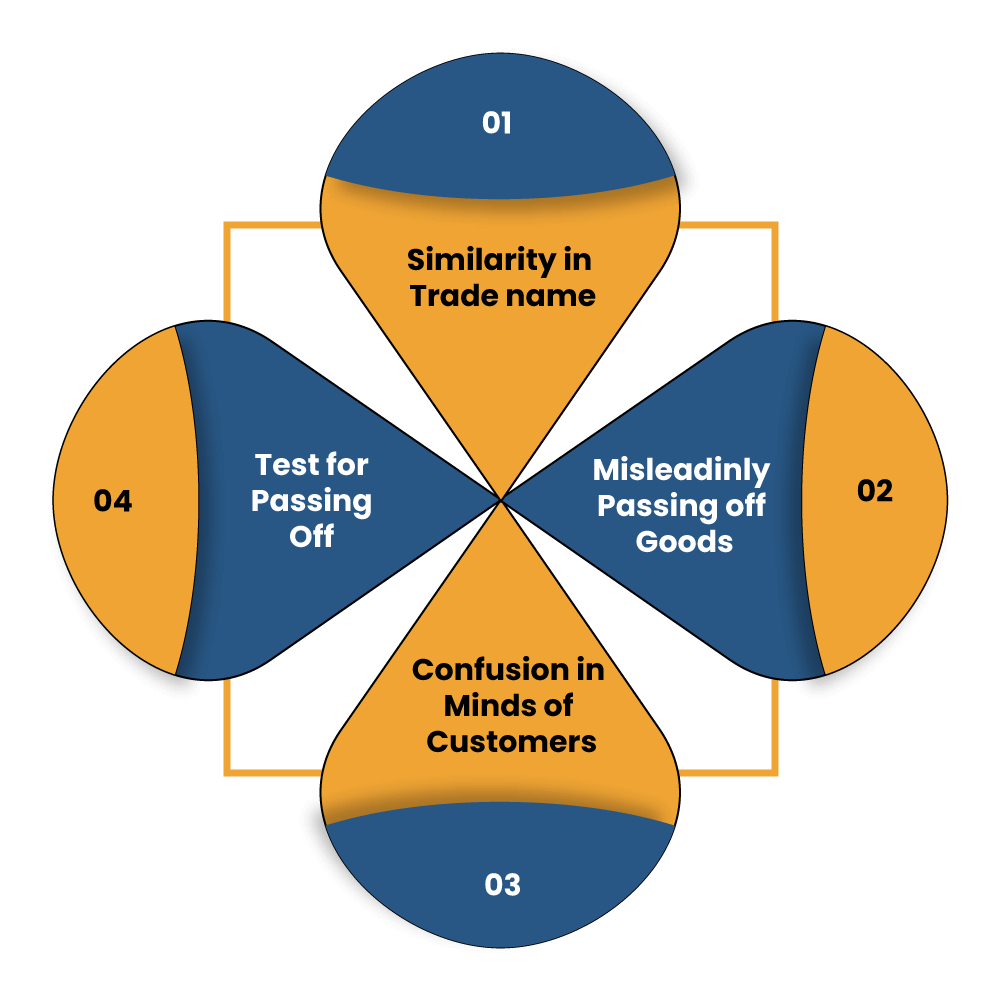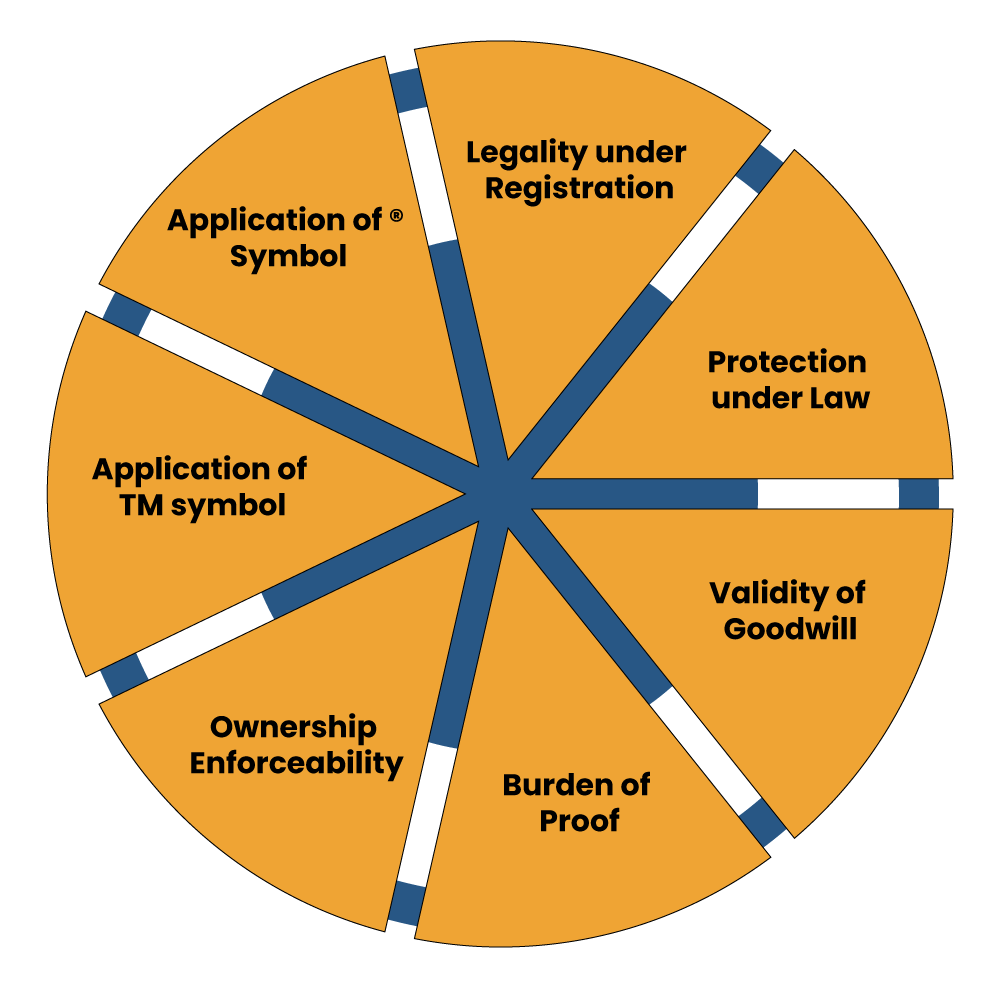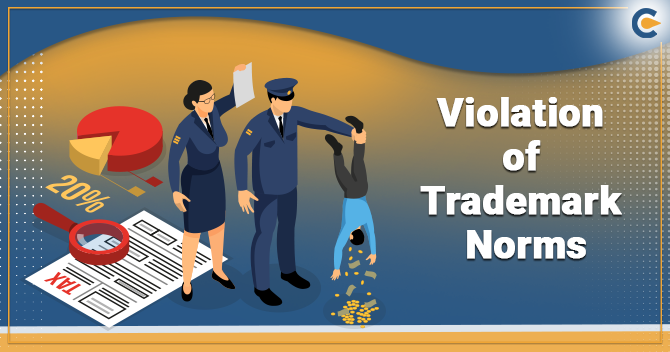Building a brand is essential to the growth and continuous success of a business or an enterprise. Accordingly, some characteristics of a brand may involve valuable and protectable forms of intellectual property specifically, Trademarks. Consequently, trademarks are commonly used to prevent copy, infringement and imitations. In order to use and put into effect the trademark rights successfully, the management as well as implementation of overarching brand and marketing strategies includes measured trademark deliberation. It is important to understand the difference between Registered and unregistered Trademarks, especially as it related to the differences in the scope of protection in India.
What do you mean by Registered Trademark?
Registered trademark grant a bundle of exclusive rights upon the registered owner, comprising the right to limited use of the trademark in relation to the goods or services. Trademark Registration is not an obligatory requirement in India. Trademark is registered for a time of 10 years and is subject to renewal. The Trademarks Act, 1999 administers the whole process of registration. Registration is required for the following reasons-
- Protects the commercial goodwill of a trader;
- Promotes goods and services;
- Identifies the source of goods and services;
- Defends the innocent public from buying bad quality goods.
The Trademark Act offers certain inducement for registration through various provisions. Chapter 4 of the Trademarks Act states the effects of the trademark Registration. Section 27 of Trademark Act provides that no action for infringement can be taken for any unregistered trademark.
But in case of registered trademark, an infringement action lies where the distressed can be sought civil as well as criminal reliefs. Furthermore, Section 28 of the act grants certain benefits on Trademark registration. Registration of a Trademark offers the registered owner of the trademark the exclusive right to the use of the trademarks in relation to the goods or service.
Additionally, the registered trademark can attain relief in respect of infringement of the trademark in the manner provided by the Trademark Act. Section 31 of the Trademark Act facilitates registration to be a prima facie evidence of validity.
What are the Benefits of Registered Trademarks for any Business?
Registration of Trademark gives a monopoly right to the mark in a particular region. It permits the owner of any registered trademark to avoid any unauthorized use of trademark in relation to goods and services.
The test is always whether a customer of the goods or services will be bewildered as to the individuality of the foundation or the source. The infringement of registered trademark can direct to filing of legal suits and the burden of proof of the plaintiff is eased due to Trademark registration.
Read our article:When to use Symbol of ® or ™ while having Trademark Registration
What do you mean by Unregistered Trademarks?
Unregistered trademark is one which does not enjoy any legal benefits. But in some cases, an unregistered trademark can obtain some common law benefits. Unregistered trademarks are defined as a mark which are not registered with respective of goods & services that is names, marks or logos used in a business under the Trademark Act.
Although, under Section 27 no action for infringement is permitted for unregistered trademarks, it can still be protected by means of common law that is Passing Off. To succeed in such actions, it is essential to establish that the unregistered trademark has similar goodwill or status in association with the goods, services or business with which it is associated.
Owner of any unregistered trademark can be able to prevent the use by another party of any infringing mark in pursuant to the Law of Tort– passing off. The action taken against passing off is based on the principle that ‘a person cannot sell his own goods under the deception that they are the goods of another person’. Passing off is a class of unfair trade competition by which one person can seek profit from the reputation of another person in a particular trade or business.
Essential Ingredients of Passing Off
There are some essential ingredients of a passing off action, which are as follows:-


- The plaintiff is required to prove that there is a similarity in the trade names;
- The defendant is misleadingly passing off his goods as those of the plaintiff;
- There is confusion in the minds of the customers;
- The test applied in such cases is whether a man of average intelligence and of imperfect recollection will be confused by seeing the goods & services.
Key Differences between Registered and Unregistered Trademarks
The differences between registered and unregistered trademarks are discussed in the points given below:


Legality under Registration
A registered trademark is the symbol, word, logo or any other unique mark, which is legally registered with the national trademark registry, on behalf of the company or source of the goods. While an unregistered trademark is a trademark which is not officially registered but it is used by the company without any approval from the specific authority.
Protection under Law
A registered trademark is confined under the Trade Mark Act, 1999, whereas an unregistered trademark owner gets protection under the Common Law[1]. The trademark rights under common law are not as powerful as rights of registered trademark.
Validity of Goodwill
In the legal proceedings, registered trademarks have the benefit of prima facie authority. On the other hand, the unregistered trademark owner has to demonstrate the validity with the importance and goodwill attached to the unregistered trademark.
Burden of Proof
When the legality of a registered trademark is challenged, the burden of proof lies with the other party that is the opponent. Conversely, in case of any unregistered trademark, the burden of proof lies with the owner.
Ownership Enforceability
If the trademark is registered, then nationwide protection is available to the owner. Whereas, when the trademark is unregistered, the enforceability is limited to a specific area, in which the owner has the reputation.
Application of TM symbol
The owner can use the TM symbol once they apply the trademark on their goods or services. TM symbol designate that the trademark used by the owner is a trademark of that particular owner. The logo is generally written in small font and is positioned beside the trademark. The unregistered trademark holder can use the TM or the trademark symbol but has no right to use the symbol ®.
Application of ® Symbol
The ® symbol is a demonstration of registered trademark. Once a trademark is registered effectively without any opposition and the certificate of trademark registration is issued, the owner can use the ® logo along with the ™ logo.
Steps for Trademark Registration in India
The process for Trademark registration in India is as follows-
- Trademark search and selection
- Application to the Registrar for trademark registration
- Application number allotted to the applicant
- Data entry
- Scanning
- Examination and Examination report is dispatched.
- Issue of certificate
Conclusion
Registration of a trademark has several motivations. Registration guards the trademark from any action of infringement which provides relief to the registered trademark holders. Therefore we can say it is significant to register a trademark to create goodwill in the market.
To survive in an easy way and for a longer period of time in the market, every individual, partnerships, company or organization shall apply for the trademark registration provided that the requirements of the Trademarks are met. The difference between registered and unregistered trademarks are explained above, Contact Corpbiz to know about Trademark Registration in India.
Read our article:A Deep Analysis on Benefits of Trademark Registration











